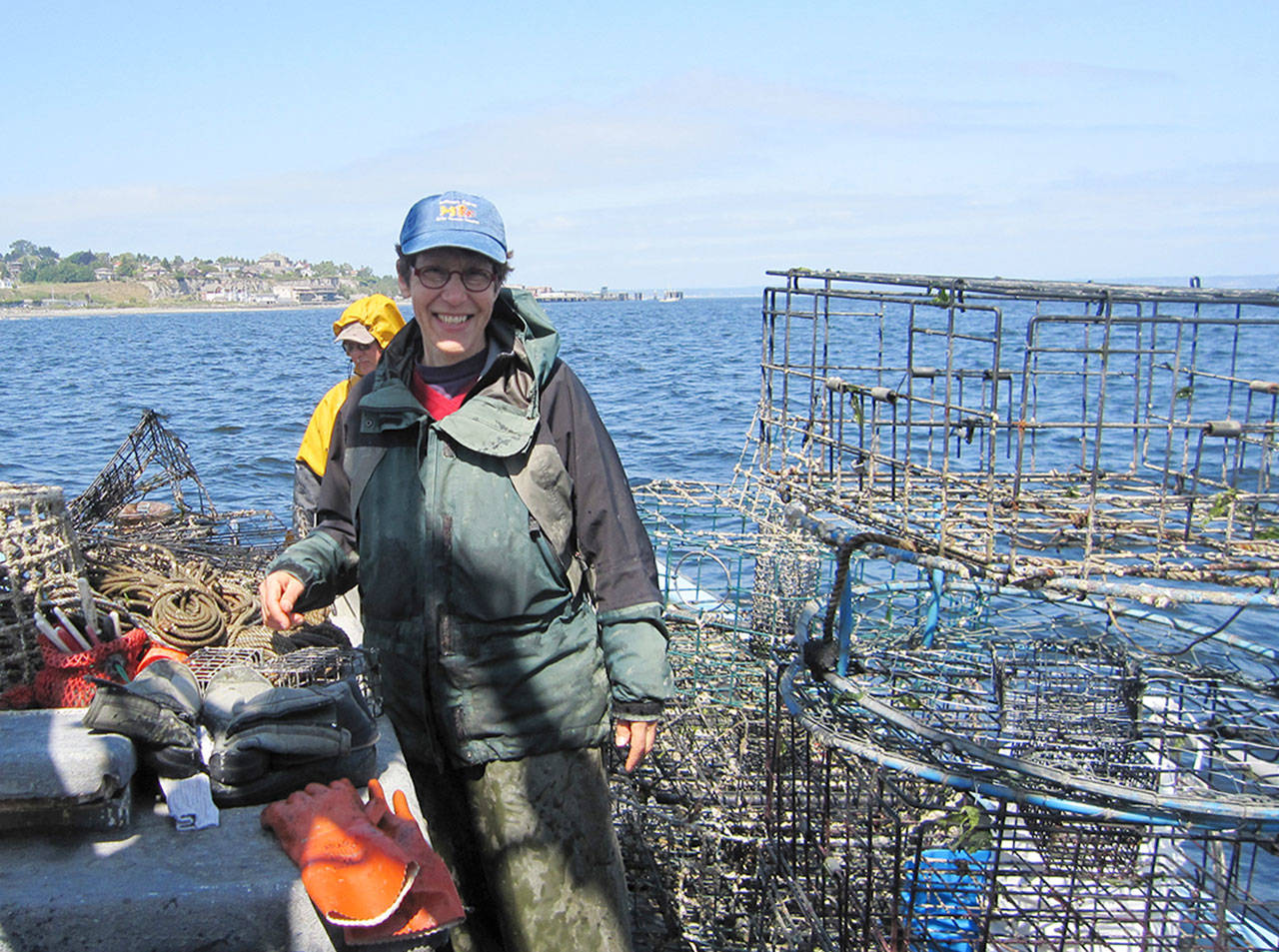The Salish Sea stretches for 6,535 square miles and is home to an abundance of marine organisms, perhaps none more popular than the Dungeness crab.
Living on the Olympic Peninsula, chances are you’ve encountered Cancer magister. Maybe it was when you learned how to crab with your grandparents, or that first time your taste buds met a Dungeness crab cake and the word “seafood” changed forever.
Regardless, as Washingtonians, the Dungeness crab plays an important role in our marine ecosystems, food culture and way of life.
Whether you’re a commercial or recreational fisher, or simply a Pacific Northwesterner who appreciates and understands the importance of healthy populations of Dungeness crab, you need to be aware of the problem of derelict crab pots.
Derelict crab pots are those that have become lost but continue to catch crab. These derelict crab pots become a serious problem, quickly. Not only do derelict crab pots entrap and kill marine life, but they reduce the amount of crab that could be caught by commercial and recreational fishers.
Each year an estimated 12,000 crab pots are lost in the Salish Sea and continue to capture crab with no one to harvest them. This leads to the mortality of nearly 180,000 harvestable crab every year. The causes of crab pot loss are often avoidable and a direct result of user error.
In order to prevent crab pots from becoming derelict, the Northwest Straits Marine Conservation Foundation has been awarded a $221,200 grant from the National Oceanic and Atmospheric Association’s Marine Debris Program.
Along with matching funds provided by Washington Department of Fish and Wildlife and The Martin Foundation, this grant will fund a three-year derelict crab pot removal and outreach project in Port Townsend and Dungeness Bays.
From 2019 to 2021, the Foundation will conduct three consecutive years of crab pot removals and support the creation and implementation of a recreational crabber outreach campaign. The goal is to remove a minimum of 1,000 derelict crab pots, clear derelict fishing gear from 5,263 acres of marine habitat and protect 15,000 Dungeness crab per year just in Port Townsend and Dungeness Bays.
The recreational crabber outreach campaign is run in partnership with the Jefferson and Clallam County Marine Resources Committees and provides plenty of opportunities for local citizens to get involved.
If you are interested in learning more about how you can help keep derelict gear out of the Salish Sea, attending one of four upcoming Crabbing 101 programs is a must.
At the workshops, you’ll learn all about Washington State crabbing regulations, listen to seasoned crabbers discuss their tricks of the trade and watch demonstrations of proper crab pot rigging practices. Programs are free but registration is required. To register, visit the Clallam Marine Resources Committee website (www.clallamcountymrc.org) or Jefferson Marine Resources Committee website (www.jeffersonmrc.org).
Clallam Marine Resources Committee’s workshops are from 2-4 p.m. on Tuesday, June 11, at John Wayne Marina, 2577 W. Sequim Bay Road, and 6-8 p.m. Thursday, June 20, in the Carver Room at the Port Angeles Library, 2210 S. Peabody St.
Rich Childers from the Washington Department of Fish and Wildlife will speak at the event in addition to longtime crabber Dave Croonquist, and Jamestown S’Klallam Tribe shellfish biologist Liz Tobin. At the second Clallam County Workshop, Childers and Tobin will be accompanied by crabber Don Hatler.
Crabbing 101 programs in Jefferson County take place from 11 a.m.-1 p.m. Sunday, June 23, in the Marina Room at Point Hudson in Port Townsend, at 4:30-6 p.m. Wednesday, June 26, at the WSU Extension classroom in Port Hadlock. Speakers include Childers, crabbing veteran Troy McKelvey and Don Williams, who serves on the Crab Advisory Committee for the WDFW Commission.
Derelict crab pots are a serious issue impacting the Salish Sea ecosystem. The work of the Northwest Straits Foundation and the Clallam and Jefferson County Marine Resources Committees promotes the idea of “Catch More Crab”, a unifying slogan that brings people from all walks of life together to clean up our marine habitat so it continues to flourish with droves of Dungeness crab for generations to come.



